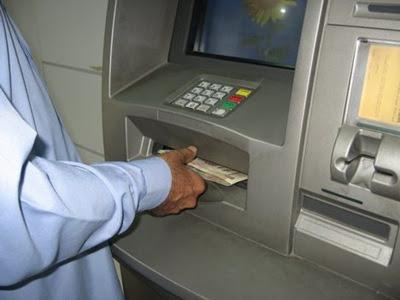*Groan at the wiping off of savings from bank lexicon
The Central Bank of Nigeria (CBN) has further increased the financial burden of Nigerians by introducing new transaction fees for using Automated Teller Machines (ATMs) already at bank branches.
Aside from the series of charges already imposed and approved by deposit money banks, the CBN has further approved more charges to be paid by bank customers for putting their monies in banks.
This review marks another charge in the use of ATMs since 2019 when the CBN has reduced then prevalent withdrawal fee from N65 to N35.
set to take effect on March 1, 2025.
In a circular, signed by the acting director of the financial policy and regulation department, John Onojah, explained that the revised charges aim to address increasing operational costs and enhance the efficiency of banking services.
According to the announcement by the apex bank, cash withdrawals from on-site ATMs (ATMs located within bank branches) will incur N100 fee per N20,000 withdrawn.
The announcement did not say what such customers would pay should they use ATMs placed outside bank branches, possibly at office locations, open spaces, markets, etc.
For withdrawals at ATMs belonging to other banks (Not-on-Us transactions), the CBN approved same N100 fee to be paid by the customer, in addition to a surcharge of up to N450 per N20,000 withdrawal.
According to the CBN, the updated fees are in line with Section 10.7 of the ‘CBN Guide to Charges by Banks, Other Financial and Non-Bank Financial Institutions (2020).’
The statement reads: “In response to rising costs and the need to improve the efficiency of Automated Teller Machine (ATM) services in the banking industry, the Central Bank of Nigeria (CBN) has reviewed the ATM transaction fees prescribed in Section 10.7 of the extant CBN Guide to Charges by Banks, Other Financial and Non-Bank Financial Institutions, 2020 (the Guide).”
“This review is expected to accelerate the deployment of ATMs and ensure that appropriate charges are applied by financial institutions to consumers of the service”.
The CBN emphasized that the surcharge is the income of the “ATM deployer/acquirer and must be disclosed to consumers at the point of withdrawal.”
For international withdrawals using debit or credit cards, banks, and financial institutions are now permitted to charge a “cost-recovery charge equivalent to the exact amount charged by the international acquirer.”
Additionally, the CBN stated that the three free monthly withdrawals for Remote-On-Us (other bank’s customers/Not-On-Us consumers) will no longer apply under Section 10.6.2 of the Guide.
The apex bank has urged all financial institutions to ensure compliance with the new guidelines before the March 1, 2025, implementation date.
Already, the CBN has approved several kinds of fees being paid by bank customers, including several forms of taxes associated with over-the-counter and online bank transactions.
What is worrying is that bank customers whose monies the banks deploy as loans and other forms of financial trading services get nothing even though the CBN has approved as high as 34 per cent interest rate as the minimum lending rate in the country.
Nigerians are worried that the new parameters introduced by the Cardoso-led CBN is not customer friendly as a customer is likely to lose over 15 per cent of his deposit per annum given the numerous taxes being imposed on Nigerians, even as their is serious cash squeeze and people who reject e-generated payments are not punished.
They are wondering why banks who keep all the money they make with the deposits of their customers would be permitted to be charging all sorts of fees to the same customers who own the money the banks recycle.
Some people say that “very soon, Cardoso will charge bank customers for the air they breath when they visit bank branches, irrespective of whether or not such a customer succeeded in the transaction that took him to the bank or not.


















